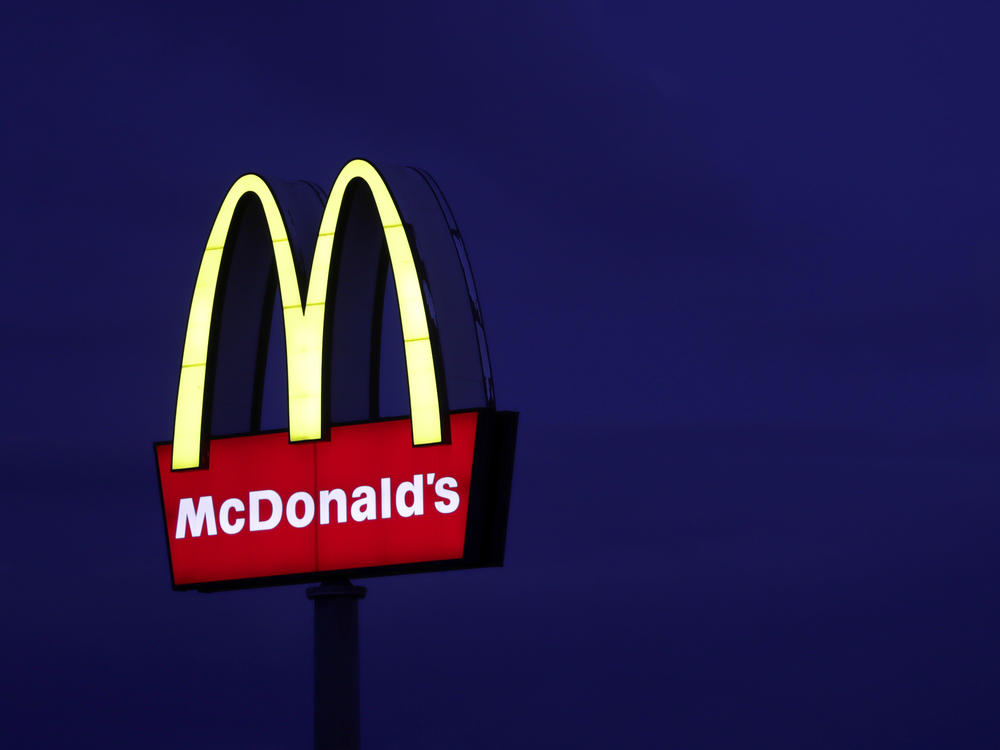Section Branding
Header Content
McDonald's franchise owners are caught violating child labor laws
Primary Content
Updated December 7, 2022 at 1:56 PM ET
A federal investigation found child labor violations involving more than a hundred teenagers at McDonald's locations in the Pittsburgh area, the U.S. Department of Labor said on Monday.
The fast food franchisee, Santonastasso Enterprises, illegally scheduled 14 and 15-year-old employees to work too many hours or work late shifts at 13 of its restaurants, according to officials.
"Permitting young workers to work excessive hours can jeopardize their safety, well-being and education," John DuMont, district director of the agency's wage and hour division in Pittsburgh, explained in a statement.
"Employers who hire young workers must understand and comply with federal child labor laws or face costly consequences."
In another case, officials said one minor under the age of 16 was allowed to operate a deep fryer that was missing a device to automatically lower and raise the baskets – a task minors in that age group are not allowed to take on.
Under the Fair Labor Standards Act, working teens under 16 can't clock in for more than 3 hours per day or after 7 p.m. on school days. They are also limited to 8 hours on non-school days, and no more than 18 hours during a regular school week. The laws are more flexible over the summer when school is traditionally out. Between June 1 and Labor Day, teens can work as late as 9 p.m.
Restaurant owners John and Kathleen Santonastasso, paid a civil penalty of $57,332 assessed by the division for the violations, the department stated.
In a statement the couple said they "regret any scheduling issues that may have occurred at our restaurants." The Santonastassos added that they have since implemented "a series of new and enhanced processes and procedures to ensure employees are scheduled appropriately."
A McDonald's spokesman added: "While franchisees make local decisions for their businesses, including around labor and employment practices, they must comply with all state and federal laws, and we expect them to uphold our values in everything they do. McDonald's and our franchisees do not take lightly the outsized impact we can deliver – and therefore the profound obligation we carry – when someone works at a McDonald's, particularly as their first job."
Subway, Burger King and Popeyes restaurants in South Carolina were also fined earlier this year for similar child labor law violations.
Since the outbreak of the COVID-19 pandemic, restaurants have been struggling with ongoing labor shortages, with some, including McDonald's, cutting operating hours across the country, which can account for the longer hours and later shifts for minors.
Child labor abuses extend beyond fast food
But the restaurant industry isn't the only one breaking the law or exploiting child workers.
Last month, the Department of Labor found that the world's largest meat processing company's plant clean-up provider, Packers Sanitation Services, or PSSI, hired dozens of children between the ages of 13 to 17 to perform dangerous jobs in Minnesota and Nebraska that left some seriously injured.
Court documents state that young workers were hired for overnight shifts to clean dangerous equipment with caustic chemicals and to clean floors where animals are slaughtered. The department said evidence gathered during a monthslong investigation suggests that the company "may employ minor children under similar conditions at its other 400 operations across the country."
Meanwhile, in July, Reuters reporters uncovered violations at a Hyundai car-making plant in Alabama. Journalist Mica Rosenberg told NPR that kids as young as 12 and 13 were hired to work at a place called Smart Alabama LLC, a metal-stamping shop that is majority-owned by the Korean automaker.
The Department of Labor said that from fiscal year 2017 to 2021, officials have uncovered child labor violations in more than 4,000 cases involving more than 13,000 minors.
Copyright 2022 NPR. To see more, visit https://www.npr.org.

